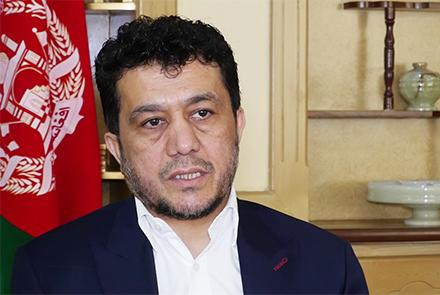Independent Directorate of Local Governance (IDLG) officials on Monday said government has no budget for the salaries of members of district councils.
Based on the preliminary plan outlined by the IDLG, members of the district councils are supposed to serve voluntarily, said the IDLG.
Syed Ahmad Khamosh, Head of Coordination of Local Council Affairs has said that government does not have the money to cover salaries.
Based on the law, there are around 2,800 seats for members of district councils and government would need to hire over 800 civil servants to process the working procedures of these members, he said.
Khamosh said the money government needs for salaries for members of district councils is estimated to be about 500 million Afs per annum which is beyond the government’s financial capability.
“We have only considered some allowances that they will use when they attend meetings, once or twice. But more than this, the issue of a connecting salary, is the authority of president and the national assembly,” said Khamosh.
“Some privileges which come in the context of attendance have been considered. But to allocate more funds, it is supposed to be the authority of the national assembly and the president,” added Khamosh.
IEC statistics indicate that up to 5,531 candidates so far have applied for nomination papers. From those who applied, 46 are women.
From the figure, 968 candidates have submitted their nomination papers and will run in the elections, said the IEC. However, IEC commissioner Sayed Hafiz Hashimi said that women’s turnout as candidates continues to remain very low.
“Unfortunately so far only 46 women have received the nomination papers and sent them back to the commission. One of the reasons is that our society is a traditional society, second, the salary scale and privileges have not been specified and third the law says that they (candidates) should have graduated from 12th grade,” said Hashemi.
But institutions overseeing the elections meanwhile have raised concerns over low turnout of candidates for the district council elections.
According to election watchdogs, so far, there is no candidate for the district council election in Uruzgan, Farah, Kandahar and Ghazni provinces.
Observers have said that in Logar only one person has nominated himself for the district council elections, in Nimroz seven, in Zabul five, in Badghis nine and in Faryab province only two people have nominated themselves.
“The situation is concerning in seven provinces, either you have less candidates or it is hard for people to participate in the elections. This makes the race in the process meaningless,” said Yousuf Rashid, CEO of FEFA.
Election commission figures show that so far over almost six million voters have registered their names for elections.

